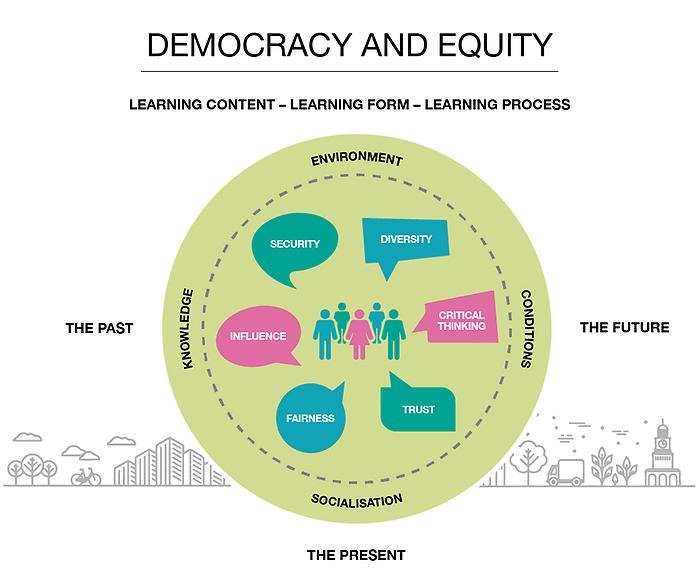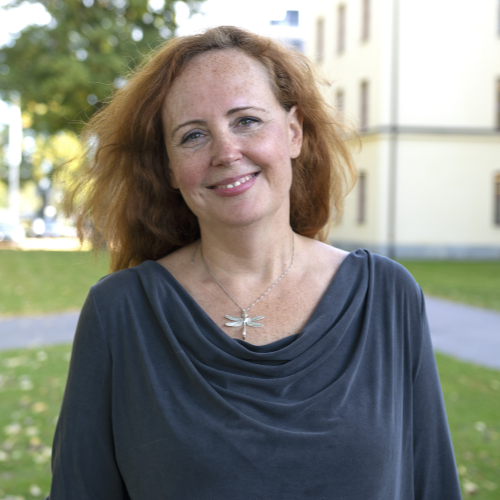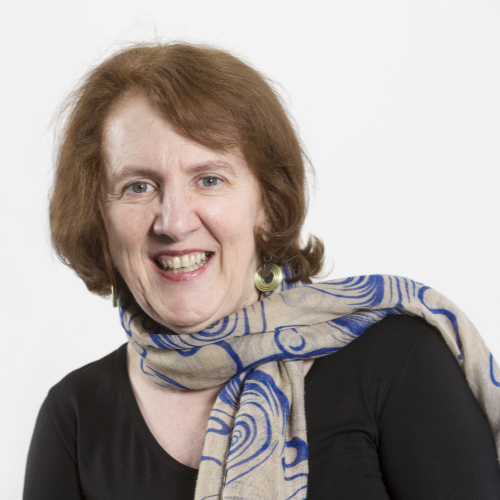Democracy and Equity
There is a considerable body of research showing that effective, sustainable, high-quality learning is dependent on a social environment that works well. In particular, democracy and equity have been shown to be important in strengthening the social environment for learning and are something that researchers at the University have been studying and specialising in for many years.
Conditions for learning need to be highlighted so that people can work with learning in depth. For instance, someone who has no support at home, is hungry, experiences prejudice and is fearful and worried is highly unlikely to perform as well as others with better conditions. Research into equity shines a spotlight on learning processes, conditions and environments with a view to achieving a balance between the distribution of resources and knowledge and the recognition of differences.
However, learning is not just about the individual: it also focuses on social issues and people’s involvement in working towards common goals. Skills that are central to a democracy – such as influence, cooperation between people, critical and scientific thinking and peaceful relations – need to be encouraged if we are to resolve today’s societal challenges such as COVID-19, refugee crises and destruction of our environment.
Purpose and overall research question
The aim of this programme is to use innovative ideas and ways of working to study lifelong learning, with emphasis on democracy and equity in the public and private sectors, based on the following overall question:
How can sustainable learning environments be created that ensure democracy and equity for people now, as well as future generations?

Current research
Our research projects focus on issues related to democracy, equity, justice, power and ethics. In particular, attention is focused on issues relating to living conditions and learning conditions for individuals and groups so as to promote social sustainability in learning environments. The Democracy and Equity programme is strongly linked to the research group SEEDS External link.
External link.
A selection of our ongoing research projects is presented here:
The Gävle Model – a successful strategy to combat bullying
People who are bullied find it more difficult to learn and are at risk of poor health. Compared to the country as a whole, the Gävle Model has a lower percentage of bullying, due not least to consideration for research, long-term commitment, high attendance, an 80% response rate among children and students and an ability to think along innovative lines. The successful project is continuing with new initiatives and is funded by the Municipality of Gävle.
More reading about Gävlemodellen:
Forskningsprojekt Gävlemodellen External link.
External link.
Gävleskolor visar hur det går att stoppa mobbning External link.
External link.
Med Gävlemodellen kan skolans arbete mot mobbning baseras på aktuell forskning External link.
External link.
Why is ethics important when teaching history?
This four-year project is based on current societal challenges such as terrorist attacks on mosques and churches, hatred and fear of dissent and the dismantling of basic democratic principles. This project asks whether – and how – teaching history can address issues of right and wrong and good and evil, based on young people’s understanding of and research into historical consciousness.
Article: Why is ethics important in history education? External link.
External link.
Monitoring research into equity for Swedish National Agency for Education
Equity is now seen as an important social strategy in order to achieve a more sustainable society in the future and includes everyone residing in Sweden regardless of their age, place of birth, gender and social, cultural and religious backgrounds. To reach out with a complex issue, research on equity is collected systematically and presented in an accessible way for all those with an interest in equity research.
Likvärdighet utifrån ett barnrättsperspektiv External link.
External link.
Likvärdighet i utbildning kan mätas med stöd av indikatorer External link.
External link.
Preventing threats and violence in the workplace
Violence in the workplace is a social problem that has received increasing attention. Increased awareness of the risks we face at work can influence how actions are valued. This project studies how tacit knowledge has the potential to reduce threats and violent behaviour in the workplace. The recipe for success is not to do the same thing all the time, but to keep changing.
Mer information om Att förebygga hot och våld i arbetslivet External link.
External link.
Artikel: Ta tillvara tyst kunskap - minska hot och våld External link.
External link.
BrightAct supporting victims of violence
BrightAct is a Swedish company that has developed a digital application that aims to make available and coordinate support for victims of domestic violence and raise awareness about violence. BrightAct has received numerous awards for its innovation, including one from the European Commission. A pilot study is currently in progress which aims to investigate whether the BrightAct app can help to provide more accessible support and information to victims of violence, and if so, how.
This project links research into current societal challenges that require an interdisciplinary research approach due to their complexity with consideration of both gender and diversity perspectives. One starting point is provided by UN Agenda 2030 and Sweden’s action plan and priority areas, where one of the goals is to ensure a peaceful and inclusive world. This study addresses classic issues that were of relevance even a hundred years ago. However, the dramatic societal changes that have taken place over the last century mean that these theories need to be re-examined.
ROCIT research school
ROCIT – Research on Interaction in Teacher Training – is a partnership involving six higher education institutions which aims to develop a greater understanding between experience-based knowledge and scientifically based knowledge in the world of schools.
Publications
Some examples of publications produced within the framework of Democracy and Learning are presented here. A selection of books and articles.
- Democracy and Teacher Education
 External link.
External link. - Fritidshemmens pedagogik i en ny tid
- Brottsligheten och samhället
- Inkludering - möjligheter och utmaningar
- Demokratiskt deltagande
 External link.
External link. - "Jag önskar att dom hade trott mig"
 External link.
External link. - Professional Learning and Identities in Teaching
 External link.
External link. - Transnational and Feminist Politics, Education and Social Justice
 External link.
External link. - Education By the Numbers and the Making of Society
 External link.
External link.
Articles
A small selection of articles from members of the research programme.
- Silvia Edling, Heather Sharp, Jan Löfström & Niklas Ammert (2020) Why is ethics important in history education? A dialogue between the various ways of understanding the relationship between ethics and historical consciousness, Ethics and Education, 15:3, 336-354, DOI: 10.1080/17449642.2020.1780899
 External link.
External link. - Sturup, J., Rostami, A., Mondani, H. et al. Increased Gun Violence Among Young Males in Sweden: a Descriptive National Survey and International Comparison. Eur J Crim Policy Res 25, 365–378 (2019). https://doi.org/10.1007/s10610-018-9387-0
 External link.
External link. - Linda Vikdahl & Johan Liljestrand (2020) Conditions for identity development among religious immigrant youth, Journal of Beliefs & Values, DOI: 10.1080/13617672.2020.1836785
 External link.
External link. - Georgieva, I.; Lepping, P.; Bozev, V.; Lickiewicz, J.; Pekara, J.; Wikman, S.; Loseviča, M.; Raveesh, B.N.; Mihai, A.; Lantta, T. Prevalence, New Incidence, Course, and Risk Factors of PTSD, Depression, Anxiety, and Panic Disorder during the Covid-19 Pandemic in 11 Countries. Healthcare 2021, 9, 664. https://doi.org/10.3390/healthcare9060664
 External link.
External link. - Francia, G.; Neubauer, A.; Edling, S. Unaccompanied Migrant Children’s Rights: A Prerequisite for the 2030 Agenda’s Sustainable Development Goals in Spain and Sweden. Soc. Sci. 2021, 10, 185.https://doi.org/10.3390/socsci10060185
 External link.
External link. - Wikman, S. & Rickfors, U. (2017). Att förebygga hot och våld i statliga myndigheter - en jämförelse mellan två perspektiv på säkerhet
 External link.. Arbetsliv i omvandling (2), 1-52.
External link.. Arbetsliv i omvandling (2), 1-52. - Geraldine Mooney Simmie & Silvia Edling (2016) Ideological governing forms in education and teacher education: a comparative study between highly secular Sweden and highly non-secular Republic of Ireland, Nordic Journal of Studies in Educational Policy, 2016:1, DOI: 10.3402/nstep.v2.32041
 External link.
External link. - Cresantus N. Biamba, Obioha N. Chidimma, Ogunji V. Chinwe, Mezieobi C. Kelechi & Nwajiuba A. Chinyere | Michael William Dunn (Reviewing editor) (2021) Assessing democratic classroom practices among secondary school civic education teachers in the global south: case study of South East Nigeria, Cogent Education, 8:1, DOI: 10.1080/2331186X.2021.1896425
 External link.
External link. - Daniel Pettersson, Thomas S. Popkewitz & Sverker Lindblad (2017) In the grey zone: large-scale assessment-based activities betwixt and between policy, research and practice, Nordic Journal of Studies in Educational Policy, 3:1, 29-41, DOI: 10.1080/20020317.2017.1316181
 External link.
External link. - Edling, S., & Liljestrand, J. (2018). Student teachers’ task perceptions of democracy in their future profession – a critical discourse analysis of students’ course texts. Australian Journal of Teacher Education, 43(7).
http://dx.doi.org/10.14221/ajte.2018v43n7.5 External link.
External link. - Johan Liljestrand (2018) The Place and Conditions for Democratic Education in Interreligious Encounters, Religious Education, 113:1, 38-48, DOI: 10.1080/00344087.2017.1384970
 External link.
External link.
Silvia Edling and Geraldine Mooney Simmie, authors of the book Democracy and Teacher Education, discuss the themes of the book.
Facts about Democracy and Equity
Purpose
The aim of this programme is to use innovative ideas and ways of working to study lifelong learning, with emphasis on democracy and equity in the public and private sectors.
Target group
The programme is aimed at all types of teachers, headteachers and municipalities, as well as major corporations in the Gävleborg region. Civil society organisations and politicians at a local, regional and national level are another important target group.
This programme has a workgroup and a group of associate members.
Silvia Edling, professor, curriculum studies
Guadalupe Francia, professor, education
Daniel Pettersson, professor, education
Erika Björklund, senior lecturer, education
Björn Haglund, senior lecturer, curriculum studies
Sofia Wikman, docent, criminology
Sara Skoog Waller, Doctor of Philosophy, psychology
Lars Hillström, senior lecturer, biology
Birgit Lindgren Ödén, senior lecturer, religious studies
Britt Johanne Farstad, senior lecturer, Swedish
Maria Fregidou-Malama, senior lecturer, business administration
Liya Kalinnikova Magnusson, docent, education
Cresantus Biamba, senior lecturer, curriculum studies
This group also includes all members of the workgroup.
Iulian Cananau, senior lecturer, English
Peder Thalen, professor, religious studies
Iiris Attorps, professor, mathematics education
Eva Kellner, senior lecturer, biology
Lena Svennberg, senior lecturer, sport science
Sarah Ljungquist, senior lecturer, gender studies
Henrik Kaatari, senior lecturer, English
Signe Jernberg, senior lecturer, business administration
Lena O Magnusson, senior lecturer, art education
Ulla Forinder, professor, social work
Gloria Macassa, professor, public health science
Maria Randmaa, senior lecturer, nursing science
Lars Westfelt, senior lecturer, criminology
Amir Rostami, docent, criminology
Malin Jordal, senior lecturer, nursing science
Stefan Sjöberg, docent, social work
Nina Begovic External link., doctoral student, Nordic languages
External link., doctoral student, Nordic languages
Kerstin Bäckman, curriculum studies
Programme officers

Please contact Silvia Edling if you have any questions about the research programme or read more about her research and see her publications in the research presentation.

Please contact Guadalupe Francia if you have any questions about the research prgramme or read more about her research and see her publications in the research presentation.
This page was last updated 2024-05-13
